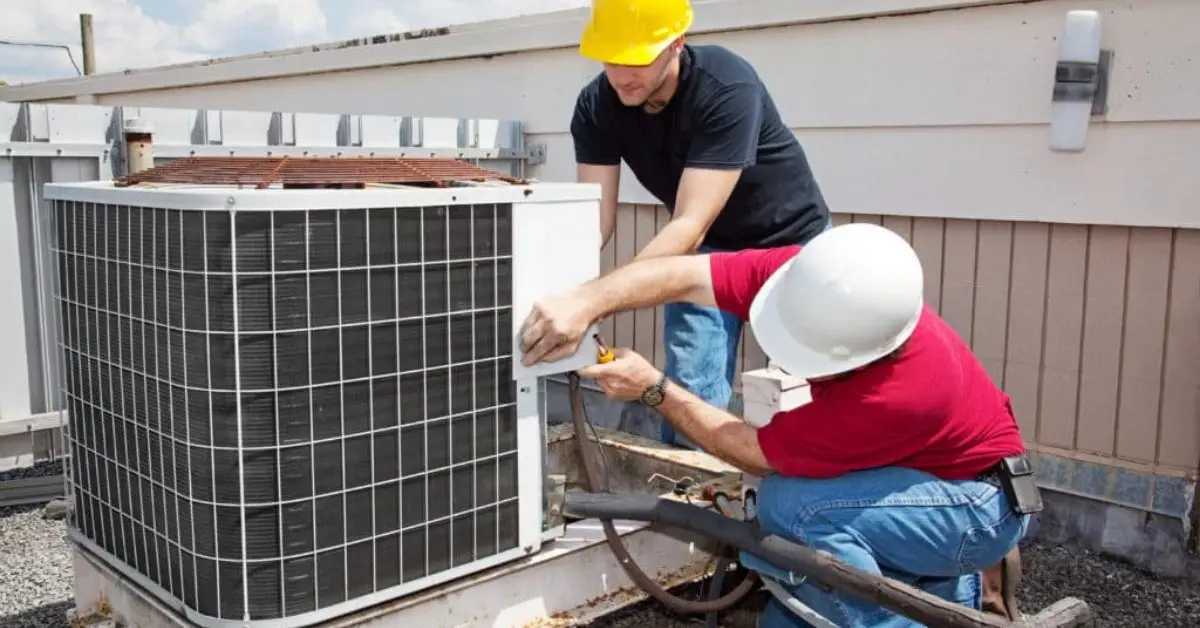6 Innocent Home Improvements That Could Get You Fined
You might think a fresh coat of paint or a small backyard upgrade is harmless. No contractors, no big plans, just you and a weekend project. But here’s the shocker: in several U.S. states, even painting your own home can legally require a license or permit. And skipping that step? It could get you fined, flagged during a home sale, or worse — forced to undo the work entirely.
I’ve seen homeowners who just wanted to repaint their siding end up getting slapped with violation notices. I’ve talked to people who built a fence a few inches too high and had to tear the whole thing down. Not because they meant to break the rules — but because they didn’t know those rules existed in the first place.
That’s what this article is here for. I’m not going to bore you with obvious stuff like “get a permit for big renovations.” You’ll find out about less obvious, genuinely surprising home upgrades that most people don’t realize are regulated — including ones as small as painting, mold removal, or replacing a water heater.
If you’re a homeowner, a DIY enthusiast, or someone planning to hire out a few weekend jobs — this guide could save you time, money, and a legal headache. Some of this might honestly surprise you.
Have you ever done a home upgrade without even thinking about permits or licenses?
Let me know in the comments — you’re not alone.
Know the Difference Before You Pick Up That Paintbrush
Let’s clear something up before we go further — because this trips up a lot of homeowners.
There’s a big difference between needing a permit, needing a contractor’s license, and needing a special certification. And depending on where you live and what you’re doing, you might need one, two, or all three.
A permit is permission from your city or county
This is usually required when you’re altering something structural, electrical, or anything that affects safety. Think: decks, fences, plumbing, HVAC, or new electrical circuits. Even changing out a window in some cities requires one.
You apply for a permit, your plans get reviewed, and after the job’s done, someone comes to inspect it. If you skip this step and get caught? You might have to redo the work — or worse, pay fines, or struggle to sell your house later.
A contractor’s license is about who does the job
This is where it gets tricky. Some states — like California and Arizona — require you to have a license to legally perform any home improvement work over a certain value. In California, that limit is just $500 total (labor + materials). That includes painting, pressure washing, and drywall repair.
So yes, if you’re hiring someone — or doing it yourself as a business — and the job exceeds that threshold, a license might be legally required. If you’re doing the work on your own home, it depends heavily on local law.
Example: In Tennessee, even interior painting could require a license if it’s over $25,000 in value. – TN.gov
Certifications are niche, but real
For older homes, painting might also trigger lead safety requirements. The EPA’s Renovation, Repair and Painting (RRP) Rule requires lead-safe certification if your home was built before 1978 and you’re disturbing painted surfaces.
Most homeowners never hear about this — until they get a warning letter or their renovation is shut down.
It’s not just about what you’re doing — it’s about how, where, on what, and by whom. If you mess that up, “just painting” your house can turn into a legal mess.
Have you ever checked your local permit office before a home project? Most people don’t — and that’s where trouble starts.
1. Exterior Home Painting
Sounds harmless, right? Just paint. But here’s the thing: in multiple U.S. states, even painting the outside of your house can require a licensed contractor — and sometimes a permit — depending on the size of the job, your location, and whether you’re hiring someone or doing it yourself.

I know how that sounds. It’s paint, not plumbing. But the law doesn’t always see it that way.
Why it might require a license
In California, for example, any job — including painting — that totals more than $500 in labor and materials requires a licensed contractor. Doesn’t matter if it’s just paint. If you’re hiring someone or running a small handyman business, skipping that license can result in a stop-work order or even fines.
Other states with strict thresholds:
- Arizona: Over $1,000 or if work requires a permit
- Tennessee: Anything over $25,000 triggers licensing
- Louisiana: Contractors need a license for jobs over $7,500
And yes — even if you’re the homeowner, some municipalities may still require permits or inspections if you’re painting multi-family units, historical homes, or homes in HOA-restricted zones.
Why this catches people off guard
Because painting feels like the most basic home project. No demolition, no construction. But once you add up power washing, scraping, priming, and multiple coats — plus rented equipment — the cost crosses thresholds that can trigger regulation.
And if you’re paying someone to do it? They better be licensed. Otherwise, you could end up liable for damages, unpaid worker injury claims, or fines from your local licensing board.
Check your state’s limit before you assume exterior painting is a free pass. Some states treat paint like a regulated trade — and you don’t want to find out the hard way.
2. Interior Painting & Lead Laws
Most people assume interior painting is even less of a big deal than exterior work. No scaffolding, no neighbors watching, no city inspector pulling up. Just you, a roller, and a couple gallons of paint, right?
But if your house was built before 1978, you could be stepping into a legal minefield.
The lead paint problem no one talks about
The U.S. banned lead-based paint in residential homes in 1978 — but millions of homes built before then still have it under layers of newer paint. When you scrape, sand, or disturb those walls, you’re releasing toxic lead dust into the air.
That’s why the EPA’s Renovation, Repair and Painting (RRP) Rule exists. It requires:
- Certified renovators to handle any work disturbing lead paint
- Proper containment and cleanup
- Documentation of compliance
- This applies to:
- Interior walls
- Trim
- Window sills
- Even dusty demolition during renovations
And it doesn’t just apply to pros — some states require owner-occupants to follow these guidelines too, especially when renting, selling, or flipping homes.
Certifications vs. licenses
This isn’t always about getting a contractor’s license — it’s about getting lead-safe certified through an EPA-accredited training. Some states (like MA, RI, and VT) have stricter local rules layered on top of the federal ones.
If you’re hiring a painter and they’re not certified? You could be held liable for any health issues, especially in homes with children.
If your home was built pre-1978, stop before you paint. Test first, certify if needed, and make sure any hired pros know the law.
Have you ever tested your walls for lead before a paint job? Let me know — it’s more common than you’d think.
3. Decks, Fences & Outdoor Modifications

If there’s one thing I see DIYers underestimate over and over, it’s outdoor upgrades. A new fence, small deck, or even a concrete patio might feel like minor additions — but in the eyes of the city, they can be full-blown code-triggering projects.
Decks are more regulated than you think
A backyard deck isn’t just a few 2x4s and stain. The second you attach something to your home’s structure — or raise it above ground level — it becomes a code-compliance and permitting issue. In many cities, even a raised deck over 30 inches from the ground requires:
- A permit
- Engineering drawings
- A licensed contractor to build
Fail to meet local building code, and you could face stop-work orders — or worse, be forced to tear it down during resale.
Fences can trigger height and zoning rules
Here’s what most people don’t realize: fence permits aren’t about aesthetics — they’re about safety and boundary law. For example:
- In Chicago, any fence taller than 5 feet requires a permit
- In Los Angeles, a front-yard fence over 42 inches needs zoning approval
- In many HOA neighborhoods, material, height, and color are also restricted
Even privacy screens, trellises, or retaining walls might fall into regulated territory depending on height and placement.
“Put up a 6-ft vinyl fence in my backyard without checking — neighbor reported it. City made me trim the entire thing by 12 inches.”
— r/HomeImprovement thread
Why this matters legally
What’s surprising is that many of these rules apply regardless of who’s doing the work. Whether you’re hiring a pro or building solo, if the project crosses certain height, structural, or setback limits, you need a permit — and in some states, a licensed contractor must do the work if it exceeds a value threshold (again, often as low as $500–$1,000).
Don’t assume your backyard is a free zone. Height, placement, and materials can turn your “weekend project” into a legal headache.
Have you ever added something outside without checking local codes? Drop a comment — I’ve made that mistake too.
4. Electrical & Plumbing Work
If there’s one category you should never mess with unlicensed, it’s this one. Electricity and plumbing look simple on YouTube, but legally and safety-wise? They’re a whole different level.
It’s not just about the work — it’s who does it
Most states clearly say: only a licensed electrician or plumber can run new lines, install new circuits, reroute plumbing, or connect gas lines. Even replacing a water heater, in many places, requires both a permit and a licensed installer.
Why? Because when these systems fail, they can:
- Start fires
- Cause floods or mold
- Blow up (literally, in the case of gas)
And if you’re touching gas lines, knowing the early signs of a gas leak most people miss can literally be life-saving — especially during renovations.
In Texas, homeowners can do some basic electrical work in their own primary residence — but can’t touch service panels, grounding, or mains without a license.
In Oregon, even running low-voltage lines (like doorbell cameras) requires a certified tech if done commercially.
Small upgrades aren’t always “safe”
Let’s say you want to:
- Move a light switch
- Add an outlet
- Reroute a bathroom sink
Most folks think: “No big deal.” But in many cities, if you touch anything behind the wall, you’ve crossed into permit territory. And if the work exceeds a cost threshold (e.g., $500 in CA, $3,000 in UT), it can also require a licensed pro — even if you’re doing it yourself.
Most articles mention “electrical work = permit,” but don’t explain how easy it is to cross that line, especially with modern upgrades like smart switches, tankless water heaters, or recessed lighting.
They also skip insurance red flags: if unlicensed or unpermitted electrical/plumbing work causes damage, your home insurance might not cover it. – Investopedia
Even small plumbing choices can cause big problems — learn how everyday products like “flushable” wipes damage your plumbing and lead to costly repairs many homeowners never expect.
If you need to open a wall or touch wiring or pipes — check the rules. Saving $300 upfront could cost you thousands in legal or resale cleanup.
Ever done your own electrical or plumbing work? I’d love to hear how it went — especially if you hit a surprise inspection later.
5. HVAC and Roofing Work

Most homeowners know HVAC and roofing aren’t easy DIY projects — but what surprises people is how heavily regulated they are. In many states, even small repairs or replacements require a licensed contractor, a permit, and sometimes an inspection before you can legally turn things back on.
HVAC: Not just air — it’s health and safety
Replacing your old furnace or installing a new AC unit? You’ll likely need:
- A licensed HVAC contractor
- A city permit
- Post-installation inspection to check for fire risk, leaks, and energy compliance
Even something that seems basic — like moving a wall vent — can trigger permit needs. Why? Because HVAC systems tie into electrical, structural, and sometimes gas lines — all code-sensitive.
In places like Georgia, New Jersey, or Florida, the licensing process for HVAC pros includes EPA certification, mechanical code testing, and work-history requirements.
Fact: Installing an HVAC unit without a permit can void your manufacturer warranty and your homeowner’s insurance.
Roofing: Tear-offs ≠ Reroofs
Think of it this way:
- Replacing a few shingles after a storm? Often fine, no permit.
- Reroofing an entire structure? Almost always needs a permit.
- Tearing off and replacing underlayment/structure? Must be licensed.
Some cities also require specific materials, slope compliance, or attic ventilation standards that only licensed contractors understand how to meet.
What the SERPs skip:
Most content touches on “you may need a permit,” but it misses:
- The legal tie between HVAC and energy efficiency codes
- The insurance and warranty voiding that happens quietly
- The fact that even minor unlicensed work can hold up a real estate transaction
If you’re touching the roof or heating/cooling systems, don’t guess — assume it’s regulated, and check first. The cost of doing it wrong is always more than doing it legal.
Had an HVAC or roofing upgrade recently? Drop a comment — would love to know if your city required anything surprising.
6. Mold Removal, Blasting & Specialty Work
This is the category that shocks most people — because it’s stuff you’d never expect to be regulated. But in many states, specialty upgrades and repairs like mold remediation, sandblasting, and even waterproofing need certifications, licenses, or bonded contractors.
And if you skip those? You’re risking fines, failed inspections, or worse — creating a health hazard that comes back on you legally.
Mold & lead: Silent but serious
Let’s start with mold removal. If you’re treating mold in a bathroom or basement, and it’s a small patch? Usually fine. But once it covers 10 square feet or more, most states — including New York, Florida, and Texas — require:
- Mold assessment by a licensed inspector
- Licensed remediation contractors
- Air quality testing after the work is done
Why so strict? Because mold spores can spread during removal, and improper cleanup can cause respiratory illness — especially in kids or seniors. It’s not cosmetic; it’s public health.
In New York, the mold assessor cannot be the same person as the contractor doing the removal — both must be licensed separately.
Sandblasting, waterproofing & coatings
These sound like industrial jobs — but a lot of homeowners rent equipment for things like:
- Paint removal on brick
- Concrete sealing
- DIY waterproofing basements or crawlspaces
In states like New Jersey, Connecticut, and Michigan, if the work involves environmental safety, hazardous material removal, or high-powered tools, you may need:
- A specialty contractor license
- Safety training (like OSHA)
- Bonded insurance coverage in case of damage
If a contractor damages your foundation while blasting or improperly remediates mold and causes sickness, and they’re not licensed or bonded, you’re on the hook. No legal recourse. No insurance help.
Not all upgrades are obvious. Niche jobs like blasting or mold removal come with hidden rules — and skipping them can create health, legal, and insurance nightmares.
Ever hired someone for mold or basement work? Did they mention licensing or just get to work? I’d love to hear your story.
5-Minute Checklist Before You Start Any Upgrade
Okay — you’ve seen how even “small” projects can trigger license or permit rules. So now the real question is: how do you know if your upgrade needs one?
Here’s a quick, no-fluff checklist you can run through before you pick up a paintbrush, drill, or demo hammer. Total time: under 5 minutes.
1. Check your project cost — not just labor, total value
In many states (like CA, AZ, UT), the combined cost of materials + labor determines whether a license is needed — even if you’re doing the work yourself.
- CA: $500+ requires a licensed contractor
- AZ: $1,000+ or any job that needs a permit
- UT: $3,000+ = license required
Tip: Include rental tools in your estimate.
2. Is the work structural, electrical, plumbing, or HVAC-related?
If yes — almost guaranteed you’ll need a permit, and often a licensed pro.
This includes:
- Moving walls
- Installing new wiring or pipes
- Replacing HVAC units or water heaters
Don’t guess. These are the most legally sensitive upgrades.
3. Is your home part of a historical district, HOA, or multi-unit building?
If so, your upgrade might require special permissions, inspections, or compliance with local bylaws — even for paint colors or minor repairs.
- HOAs may enforce fines for non-approved work
- Historical homes may ban certain materials or changes
4. Search “[your city] permit portal” or call the building department
Most cities now have easy online portals to check:
- If your project needs a permit
- What the limits are for unlicensed work
- Which types of upgrades trigger inspections
Example: Search “Chicago deck permit” or “Austin fence regulations” and your city’s portal will often pop right up.
5. Are you hiring someone? Ask if they’re licensed and insured — and verify it
Don’t just take their word for it. Ask for their license number and check it on your state’s contractor licensing site. A legit pro will never hesitate to give it.
Remember: Skipping these checks might save you an hour today — and cost you thousands later. Permits and licenses aren’t just red tape — they protect your safety, your resale value, and your peace of mind.
Do you usually check this stuff before starting a home project? Be honest — most people don’t. Drop a comment and let’s talk.
So, What’s the Real Takeaway Here?
Honestly? The biggest surprise isn’t that you need a license for certain upgrades — it’s how easy it is to accidentally break the rules.
From painting in historic zones to swapping out plumbing fixtures or upgrading a water heater, what feels simple often isn’t once you look at the fine print.
And that’s the trap most homeowners fall into:
- They skip permits to save time or money
- They hire unlicensed “pros” because they’re cheaper
- Or they just don’t know what the rules are
If you’re buying your first home and planning changes, here’s what first-time homeowners should know about layout, energy, and peace of mind before jumping into renovations.
But down the road? Those shortcuts can kill a sale, void your insurance, or cost you thousands in fines or repairs.
So if you’re planning any home upgrade — big or small — remember:
If it touches structure, wiring, plumbing, HVAC, or safety systems… Always check your local laws, licensing rules, and permit needs first.
Because smart renovations aren’t just about good materials — they’re about legal peace of mind.
Got a Home Project Coming Up?
Planning something and unsure if you need a license or permit? Drop a comment and let me know the project — I’d be happy to help you figure it out.
And if you’ve already been through the headache of a permit fail or unlicensed contractor nightmare — share your story. It might save someone else a ton of stress (and money).
A Quick Legal Note (Read This)
Every state — and even city — has its own rules around permits, licensing, and inspections. This guide is here to help you understand the common patterns and risks, but it’s not legal advice.
Always check:
- Your state licensing board
- Local building permit portal
- HOA or historical district guidelines (if they apply)
And when in doubt? Call your local city inspector. They’d much rather answer your question early than fine you later.
Still planning your next project? Browse more articles on Build Like New
Disclaimer: This article is for informational purposes only and does not constitute legal or professional advice. Always check your local laws, permit requirements, and consult licensed professionals before starting any home upgrade.


